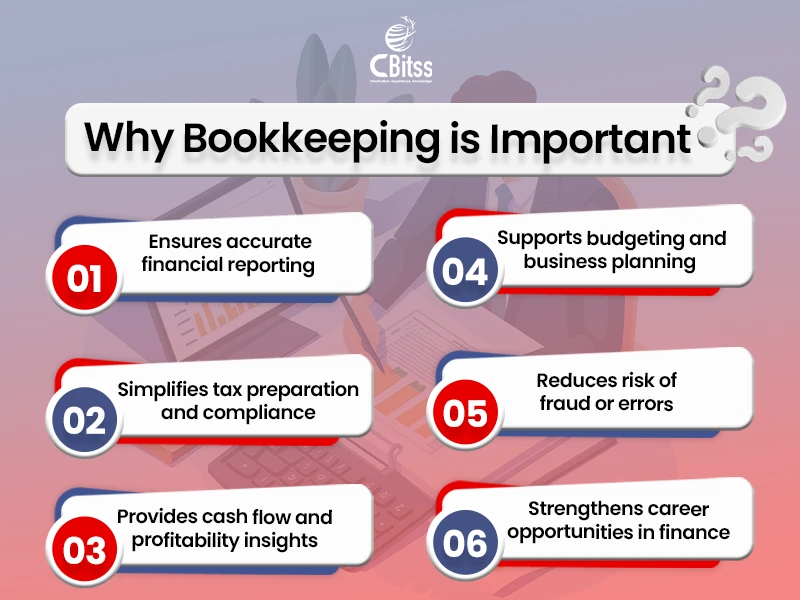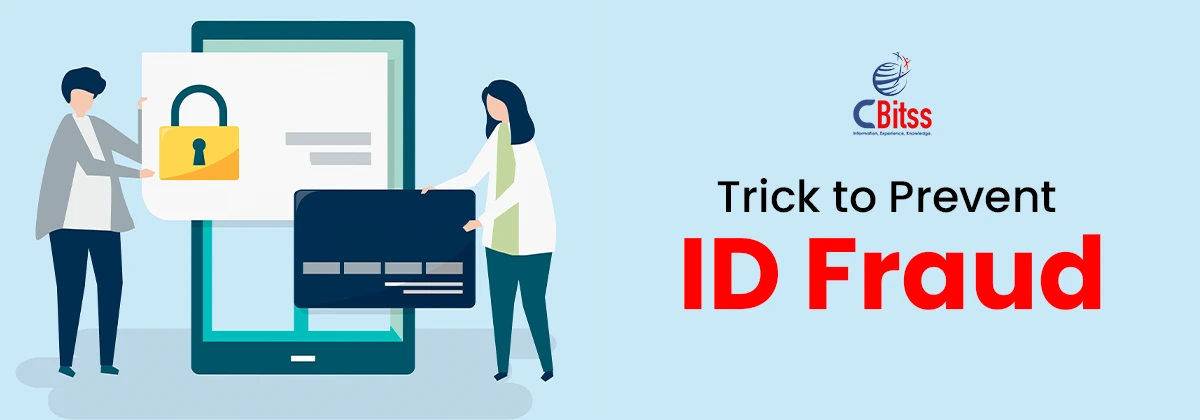Table of Contents
ToggleWhat is Bookkeeping? It is an act of documenting all financial transactions of an enterprise. Good bookkeeping also implies that companies can make the right choices and can track gains and comply with rules. Small and large businesses are using professional services or software to keep their financial records clean and orderly.
With this knowledge, businesses would be able to analyze spending patterns, determine growth opportunities, and avoid costly financial mistakes. Bookkeeping software for small businesses is becoming increasingly efficient and accurate. This is because more future-oriented businesses integrate traditional bookkeepers with their software. With the help of this article, you will see the clear picture of what it is and why all businesses, regardless of their size, need it.
By the end of this article, you will be informed about how this is conducted, the value it can offer, and what modern solutions and software can bring to the efficiency of the process.
This article is set to provide you with tools that will not only clarify the basics of this, but it will also demonstrate how you can utilize this knowledge to make better financial decisions regarding your business.
What is Bookkeeping?
Definition
All financial transactions, such as sales, purchases, receipts, and payments, are captured in this. It forms the basis of accounting and financial reporting, and in the absence of appropriate keeping, businesses can run the risk of inaccurate reporting, missed tax filings, and poor decision-making.
It has the following benefits:
- Ensures proper financial reporting to the stakeholders.
- Simplifies tax preparation and regulatory compliance.
- Provides insights into cash flow, expenses, and profitability.
- Supports budget planning and strategic decision-making.
- Protects businesses against fraud: This can be done through proper record management.

What is Bookkeeping?
They arrange documents and keep financial data in proper order. They are the support system of accounting for a company.
Key Responsibilities
Transaction Recording
- Record daily sales, purchases, and payments with accuracy.
- Track both cash and digital transactions consistently.
Reconciliation
- Compare internal records with bank statements.
- Identify faults or anomalies to avoid wastage of money.
Reporting
- Write summaries of financial activity reports.
- Generate periodic statements for management or investors.
Compliance
- Ensure all records meet tax regulations and legal requirements.
- Support audits with organized documentation.
Master bookkeeping to excel in accounting and finance.
Download Syllabus
Types of Bookkeeping Services
Depending on needs and size, businesses have a lot of options in these services.
| Type | Description | Benefits |
| Full-Service | Full-Service Covers all financial recordkeeping | Saves time, makes sure it is accurate. |
| Specialized | Payroll, taxes, or inventory | Focused expertise for specific needs |
| Outsourced | An external company deals with books | Economical and adaptable. |
| Automated | Software-driven ones | Fast, automated, human error reduction. |
To be more efficient, companies tend to integrate manual accountants with automated software.
Career Opportunities
Digital transformation is increasing the variety of these jobs.
Skills Required
- Numeracy and attention to detail.
- Familiarity with accounting software and financial reporting.
- Critical thought to identify anomalies.
Job Opportunities
- Invoices and receipts clerks on an entry level.
- Senior-level and team supervisors.
- Remote bookkeeping jobs for small businesses or startups.
- Future Trends: With AI and automation, repetitive work is reduced to allow them to focus on analysis.
Special bookkeeping jobs are created in the e-commerce, fintech, and renewable sectors.
Modern Tools: Bookkeeping Software for Small Business
Bookkeeping software for small businesses is becoming a popular way of managing money in small businesses.
| Feature | Purpose | Example Use |
| Invoicing | Track payments and send reminders | Automate customer billing |
| Expense Tracking | Monitor spending and categorize bills | Reduce manual errors |
| Reporting | Calculate financial health | Create a monthly profit statement. |
| Cloud Sync | Collaborate remotely | Share records with accountants |
The advantages of software include speed, accuracy, real-time insights, and remote collaboration. With software and a human keeper, accuracy will be ensured along with the strategic direction.
New Tendencies in Bookkeeping
Technology and business requirements are changing the nature of this process.
- Automation helps to minimize manual entry and hasten the reconciliation process.
- Cloud-based platforms enable real-time collaboration between teams and accountants.
- Predictive analytics are used to predict cash flow and financial risk.
- Mobile apps enable business people to keep track of transactions in real time.
- Sustainable businesses use these services, which measure money and the environment.
Practical Tips for Effective Keeping
Record Keeping
- Books to be updated on a daily or weekly basis to avoid a backlog.
- Keep digital copies of receipts and invoices.
Reconciliation
- Reconcile monthly to identify errors in a good time.
- Use both manual checks and automated tools for accuracy.
Reporting and Analysis
- Prepare monthly cash flow reports.
- Review profitability by product line or service type.
Choosing Services
- Consider the size and complexity of your business, and then you ought to hire these services.
- Think about software to augment a professional one.
- Ensure services or software maintain compliance with tax regulations.
The benefits of outsourcing this Service
Outsourcing can be of great benefit to any type of business:
| Advantage | Description |
| Cost Savings | Reduce full-time payroll expenses |
| Expertise | Get the ones with experience. |
| Flexibility | Scaling services by workload. |
| Technology | Use high-quality software with no investment. |
| Division | Management can be core-business focused. |
Most startups like outsourcing to ensure that they are on the right track and ensure that they keep the costs in check.
Complete your bookkeeping learning in short duration.
Future Outlook: Bookkeeping in 2026
- Most of the repetitive process will be done by AI and machine learning.
- They will work on analysis, strategy, and compliance control.
- Mobile-first small business software will take over the market.
- Demands in specialized jobs in e-commerce, sustainability, and fintech areas will increase.
- Businesses will turn to hybrid solutions: automation of software with the help of specialists.
How to avoid things in bookkeeping?
Good keeping ensures that it is accurate, although there are common pitfalls that can result in errors or compliance problems. Here are some things to avoid:
- Combining business and personal money.
- Inability to document transactions in real time.
- Failure to consider receipts, invoices, and support documents.
- Failure to reconcile bank statements regularly.
- Having wrong or old-fashioned software.
- Ignoring taxation laws.
- Depending only on manual entry: This means that only manual entries are done without software validation.
- Failure to support financial records regularly.
Who Can Become a Bookkeeper?
Any person interested in finance and numbers can learn these skills. The one that would suit the people who are eager to learn about business finance, keep proper records, or have the profession of accounting in mind is the one. These courses are tailored to beginners and those with knowledge who wish to acquire more skills.
Possible applicants are:
- Students majoring in commerce, finance, or business.
- Small business owners or entrepreneurs who would like to handle their own finances.
- Accounting students wishing to major in this.
- People who seek to work remotely or in a freelance environment.
- Everyone who wants to know how to manage money and how to advance in their career.

Join Bookkeeping Classes & Get Certified
Conclusion
So, you might have understood what is Bookkeeping. It is the foundation of any successful business that maintains proper financial records.
Accuracy, compliance, and financial transparency:
- Accuracy: A skilled person in this field and credible services help to maintain accuracy.
- Compliance: A skilled person in this field and credible services help to maintain compliance.
- Financial transparency: A skilled person in this field and credible bookkeeping services help to maintain financial transparency.
These Small business software helps companies to streamline their operations and minimize mistakes. Those companies, which are concerned about bookkeeping, receive information, become less risky, and are ready to grow sustainably. The art of being future-ready in this is a combination of technology, professionalism, and strategies to be as efficient as possible.
Be in charge of your own finances!
Take our full Accounting course to obtain the skills and knowledge required to handle business finances and do it right.
Train with business gurus, get familiar with the latest tools, and find the financial career you deserve.
You can begin today. Develop skills, be accurate, and advance your career through it!

Sukhamrit Kaur
Sukhamrit Kaur is an SEO writer who loves simplifying complex topics. She has helped companies like Data World, DataCamp, and Rask AI create engaging and informative content for their audiences. You can connect with her on LinkedIn.







